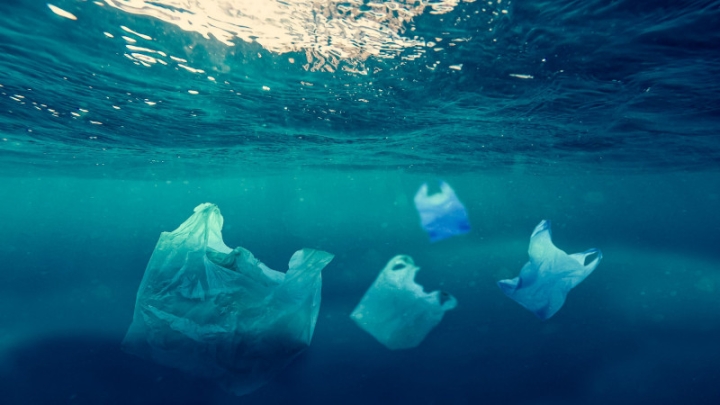
Plastic bag regulations – bans and consumer fees – have led to meaningful reductions in plastic litter on U.S. shorelines, according to a new study.
Plastic pollution has become a pervasive environmental issue; plastic debris comprises most of the marine litter worldwide and has been shown to pose serious threats to ocean life, ecosystems, and coastal economies. Much of this pollution originates from land and enters the ocean via rivers, wastewater, or wind.
Among the most problematic items entering marine systems are single-use plastic shopping bags, which has prompted the implementation of a variety of policies – ranging from fees to outright bans – to curb this pollution. Although these policies are being increasingly used worldwide, their effectiveness in reducing plastic waste in the environment remains unknown.
To address this gap, Anna Papp and Kimberly Oremus evaluated the effects of plastic bag bans and fees in the United States on the prevalence of plastic bag litter on shorelines. Papp and Oremus analyzed crowdsourced data from more than 45,067 U.S. shoreline cleanups alongside 611 local and state-level plastic bag regulations enacted between 2017 and 2023.
By applying robust causal inference methods, the authors found that plastic bag policies led to a 25–47% reduction in the proportion of plastic bags among total litter collected during cleanups compared to locations without such regulations.
According to the findings, policies involving consumer fees potentially have the largest impact on reducing litter. While complete bag bans also reduced litter, partial bans, which often allow exceptions for thicker “reusable” bags, appeared to be the least effective.
Moreover, the largest reductions in plastic litter occurred in places that had the highest baseline levels of plastic bag pollution, suggesting that these policies are most effective where the problem is most severe.
Papp and Oremus also suggest that plastic bag policies may reduce wildlife entanglement by 30 to 37%, though they note that these estimates are imprecise due to data limitations.

